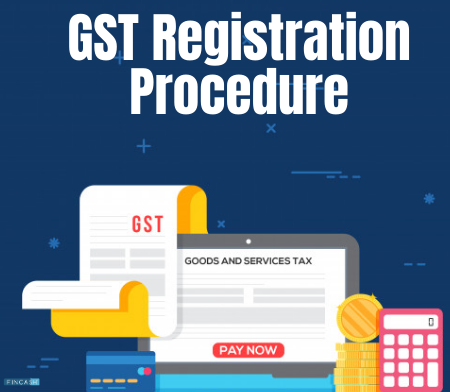The Ultimate Overview to Streamlining the GST Registration Refine and Requirements for Small Company Owners

Recognizing GST Essentials
To grasp the principles of the Item and Solutions Tax (GST) system, small business proprietors need to first recognize its underlying concepts and implications. Under the GST routine, companies are required to sign up and collect tax obligation on behalf of the government, making certain transparency and conformity.
One of the crucial concepts of GST is input tax obligation credit report, which allows companies to declare credit for taxes paid on their purchases. Comprehending these fundamental concepts is critical for small company owners to navigate the complexities of the GST system and guarantee compliance with the regulation.
Qualification Criteria for Registration
Having established a foundational understanding of GST principles, tiny business proprietors have to currently meet particular qualification criteria to proceed with the registration process. In India, entities involved in the supply of products or services with an annual aggregate turnover going beyond Rs. 40 lakhs (Rs. 10 lakhs for unique classification states) are called for to sign up for GST. In addition, particular organizations such as those entailed in inter-state supply of products, laid-back taxed individuals, and those called for to pay tax obligation under the reverse fee system should register for GST regardless of their turn over. Businesses that were signed up under the previous tax program (BARREL, solution tax, and so on) are additionally mandated to register under GST. However, farming services that only provide create out of primary production are excluded from GST registration. It is critical for entrepreneur to thoroughly assess their qualification based upon these standards to make certain compliance with the regulation and prevent any kind of charges for non-compliance.
Files Required for GST Enrollment

Simplified Registration Refine Actions
Tips for Ensuring Compliance
To maintain regulatory adherence and operational stability, thorough oversight and aggressive actions are crucial in ensuring compliance with GST requirements for small company proprietors. Little service proprietors have to remain upgraded with GST laws, submitting target dates, and any kind of adjustments in tax obligation prices to stay clear of fines and keep an excellent standing with tax obligation authorities. Participating in GST awareness workshops or training programs can enhance understanding and compliance with GST regulations, ultimately profiting the company in the long run.
Final Thought
In verdict, small company owners have to recognize the essentials of GST, fulfill the qualification standards, gather required papers, and follow the simplified registration procedure actions to make certain conformity. By streamlining the GST enrollment process and requirements, tiny business owners can stay clear of charges and run their businesses smoothly within the lawful structure - Singapore GST Registration. It is important for small company proprietors to stay informed and certified with GST guidelines to preserve an effective service operation
Tiny company owners looking for GST registration have to ensure they gather and send the required records to finish the registration procedure efficiently. The documents needed for GST registration usually include evidence of service enrollment or unification, FRYING PAN (Long-term Account Number) card of the service entity, address and identification proof of the promoters/partners/directors, photos, address proof of the location of organization, bank account declarations or terminated cheques, and permission kinds. Attending GST understanding workshops or training programs can boost understanding and compliance with read what he said GST guidelines, ultimately benefiting the service in the lengthy run.
By simplifying the GST enrollment procedure and demands, little organization owners can prevent fines and run their companies efficiently within the lawful structure. It is important for little organization owners to stay educated and certified with GST policies to preserve an effective service procedure.
Comments on “Why Singapore GST Registration is Critical for Your Start-up”